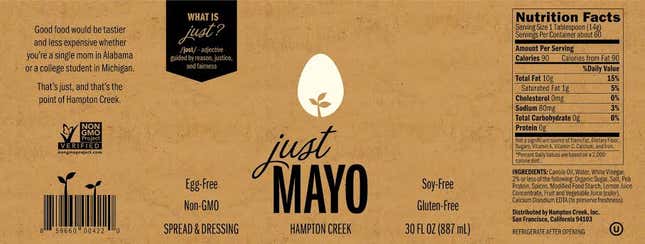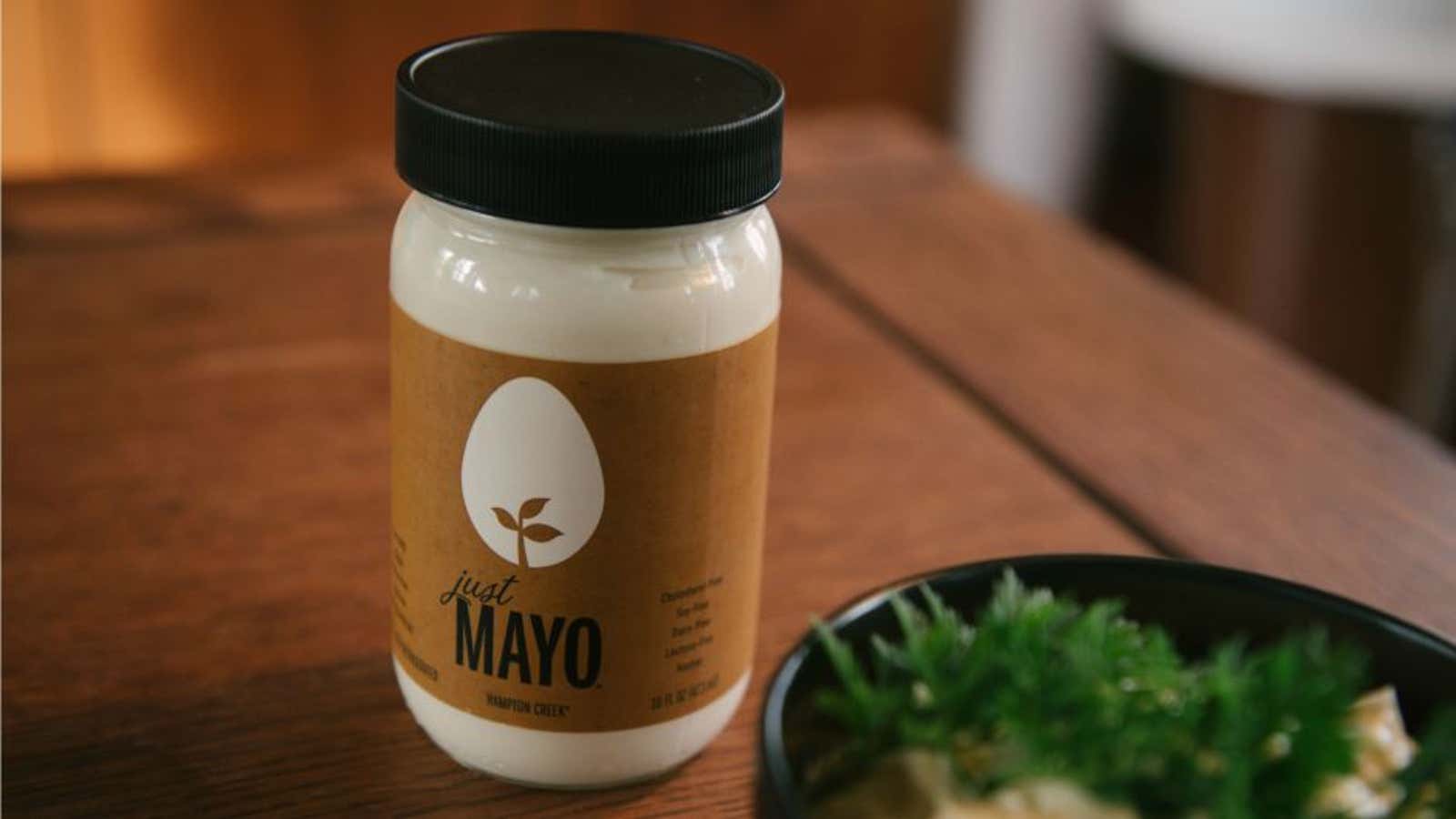This post has been updated.
In the Great Vegan Mayo Wars of 2015, eggless mayonnaise maker Hampton Creek has scored a big win.
The company says it has worked out an agreement with the US Food and Drug Administration that will let it keep the name of its “Just Mayo” vegan mayo, as long as it makes some changes to its labeling.
The Silicon Valley food startup received a warning letter from the FDA in August, in which the agency said ”Just Mayo” was misleading consumers.
The new label clearly states that Just Mayo does not contain eggs. And CEO Josh Tetrick tells Quartz it will emphasize the word “just”—not as in “only” but as in “guided by reason, justice, and fairness.”
“That’s going to be a part of our label going forward,” says Tetrick.

The FDA told Quartz, “The FDA and the company met to discuss the issues cited in the warning letter and worked together to address them. The company committed to making labeling changes to ensure its products are labeled in a manner that is truthful and not misleading. Therefore, the FDA considers the issues cited in the warning letter to be resolved and will issue a close out letter soon.”
Just Mayo has seen explosive growth, not just at upscale stores but at mass chain like Walmart, which now sells more of the product than Whole Foods. The products are sold internationally as well, showing up in Mexico and Japan.
The egg industry has been clearly shaken by its success. Unilever filed a suit against Hampton Creek, but one year ago today it withdrew the suit after facing a public backlash. In September, emails exposed through a Freedom of Information Act Request showed that the company was being targeted by the American Egg Board, a research and promotion office that operates under the control of the US Department of Agriculture. The Board unsuccessfully tried to have Just Mayo removed from Whole Foods shelves and was encouraged by a USDA employee to report the label to the FDA.
The FDA would not comment on its motivations for the warning letter and the USDA told Quartz that it “does not condone any efforts to limit competing products in commerce.”
Tetrick describes this announcement as part of the company’s plans to change the food system for the better. “If we’re on the same page of creating a better food system,” he says, referencing the FDA, other companies and policymakers, “there’s a lot of way to find common ground.”
This post was updated with a statement from the FDA.
